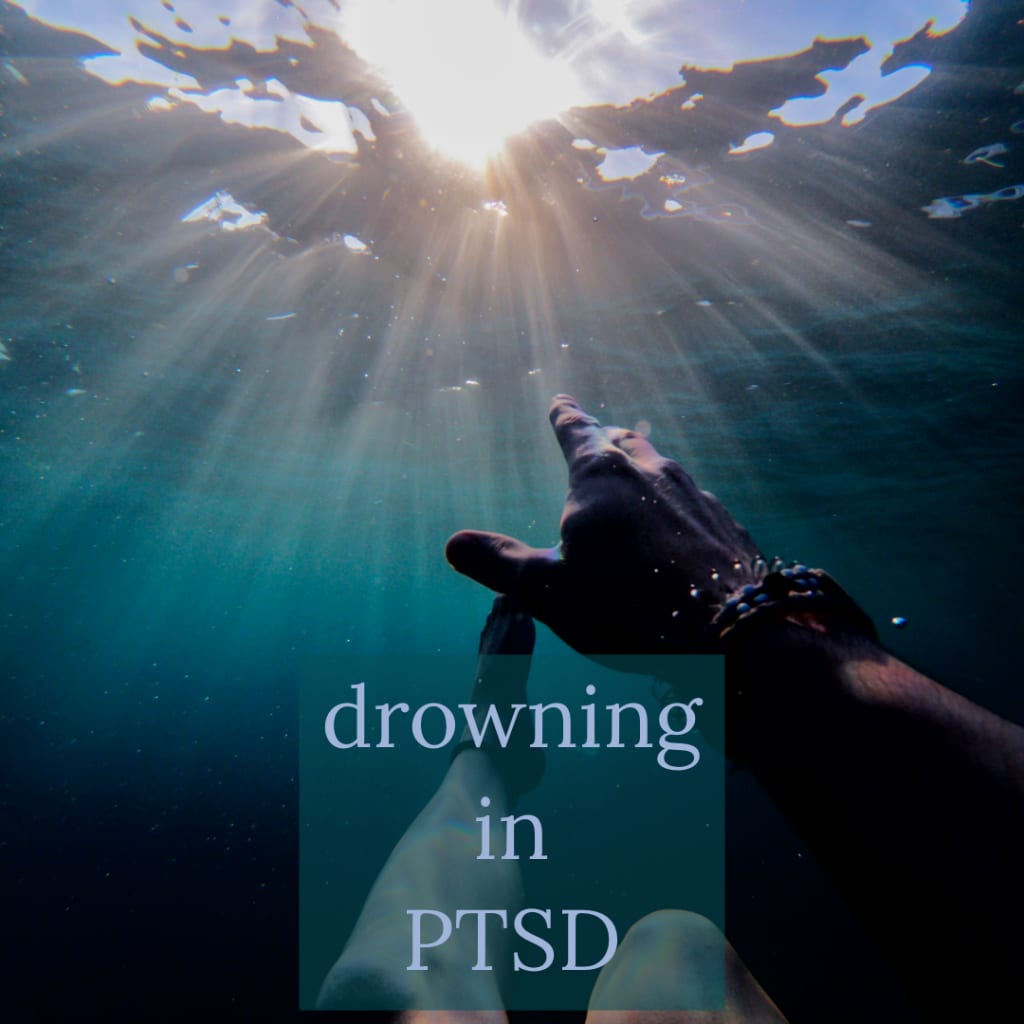
Full Spectrum Treatment Needed
With such a variation of causes to Post Traumatic Stress Disorder, and it being a relatively new diagnosis, only receiving its rightful place in 1980 by the APA (the American Psychiatric Association) and even controversial in acceptance then, treatment styles for PTSD vary quite widely in effectiveness as well as concept.
The effects of PTSD are all consuming. Life screeches to a halt, and the victim finds themselves in a crushing, isolated darkness. Finding help is difficult when you don’t know what to look for, or even what might be the diagnosis on what you’re experiencing. The shock of the trauma takes such a toll on mind and soul, that usual cognitive functions and thought processes are most likely stunted, if not halted all together.
For myself, I had been suffering for six months prior to being diagnosed with PTSD. I truly didn’t know much past the need to breathe and somehow get myself through the day. I received very little support from family or friends, and found myself desperately grasping at straws to somehow implement a healing process and journey. I experienced several additional losses in that first year, and nearly died on an emergency surgery table as a result of a melon sized cyst that had grown in my stomach, engulfing my left ovary. With no real motivation to live any longer, I spent three hours in the ICU after a routine, normal 45 minutes surgery. It was then that the battle for my life was fought.
I was seeing a therapist during that time, and can tell you just driving through otherwise normal traffic exhausted me before I even arrived at my sessions. She was a behavioural psychologist. I recall her efforts well, but they were misplaced in my case.
She spent a number of sessions on my ‘backstory’—which means she grilled me about extended family members and their histories. I couldn’t remember their names! This caused me even more stress, because this didn’t matter to me at all, I was still trying to just breathe, and get through a coherent sentence without sobbing for most of it.
Looking back now, I see this is routine and provides therapists with information. But the first aid I needed never came. Perhaps if this had been combined with something more heart and wholeness based, I could have had a better cognitive recall? I was given books to read that also made my situation worse. I didn’t have the wherewithal to realize I needed to find a different source for real, effective help. The sessions became fruitless, until I finally gave up and stopped going.
It’s hard not to be angry at the lack of help I received during those pricey sessions with a well respected, highly recommended, trauma therapist. I convinced myself that the problem with my lack of recovery was just a matter of time, and if I continued to go, I would somehow find my way back to the light.
By now I was completely isolated, my embarrassment at random streams of tears flowing down my face at the grocery story or whenever I attempted to go for coffee, slowly and steadily had me hiding at home, desperate to find help but unable to locate it. The help I was paying for in either book or therapy format, did not feed my recovery to the extent it should—or could—have.
I’m not saying Behavioural Therapy won’t work for other PTSD patients. For me, though, I needed soul nurturing, I needed to have self worth and love taught to me, I needed to receive self talk coaching in order to combat the awful voices keeping me from sleep for two years.
It seems to me that PTSD presents itself differently for each person, with a few basic commonalities of course, but each personal history and emotional factor affects each person in unique manifestations.
PTSD does not occur for each person accosted by trauma, either long or short term. Once the shock wears off, and the bumpy ride to healing begins, some of us are able to proceed with our lives without getting stuck. What a precious gift!
So how then do we get stuck? Lack of support, lack of real, tangible help, lack of emotional and physical safety. Based on my own experience, I find it odd that behavioural therapy is at the top of the list for PTSD treatments. PTSD is an injury of the soul, the mind, the heart. I can have all the healthy behaviour patterns in the world, and we can fine tune certain habits, but we’re working from the outside in. I recall asking the therapist to work from the heart first, because that’s where the injury was, that’s where the healing needed to begin. She did not agree. And I suffered for it.
I’ve asked a male friend of mine about his PTSD treatment, also with a Behavioural Therapist, and although he did not want to do an entire interview, or offer his identity, here are a few tidbits I was able to receive (I wanted to know if perhaps this is a male vs female treatment issue):
After three months of regular treatment, he attempted suicide.
His deep seeded anger is still curdling within him, even three years later, and after having been “graduated” from treatment.
His behaviours were sufficiently modified, and because these were an addiction, this was both his and his therapist’s primary focus.
Some childhood traumas were worked through, causing him to be more aware now of behavioural patterns, as a result, allowing him to be more aware of his choices.
I have several female friends who have been suffering from PTSD much longer than I have. They have chosen to subscribe to the marijuana concept. They love it. It allows them to keep anxiety in check.
So Behavioural Therapy appears to help with just that, behavioural patterns. Marijuana is allowing people to live without the heightened anxiety.
And I have issues with both. I return to the needs of the mind and soul. Because mind and body are connected more than any of us give credence to. My trauma nearly killed me, and my friend’s trauma nearly had him succeed in his taking his own life. I see my friends living with less anxiety, but the roots, the cause, the triggers that cause the anxiety, are not being addressed or healed. Both treatment styles, in my opinion, are one sided, band-aid style concepts.
If we are to effectively treat PTSD, we will require an all encompassing, full spectrum treatment plan, that includes enough flexibility to allow for each patient’s unique needs toward their healing journey. It is a journey, and there are good days and bad, strong times and weak. A trauma has occurred, and a human being is on their knees, fighting for oxygen and support. We must first provide them a safe place, and then baby step each person in to their unique journey back to the light.
The ramifications of not first providing a safe place with compassion and understanding can be fatal. As a safety net is provided to the patient, treatment should be directed by both the therapist as well as the patient. I recall asking my therapist for a referral to a safe place I could retreat to, but with no such facility in my area, and with no strength to coordinate this myself, I was forced to accept that healing would need to come within the terms dictated to me. And I needed to lean on the warrior I once was, to find what I needed, under my own guidance. I believe this process could have been much more effectively negotiated, and in a more timely manner, had I received full spectrum recovery support.
~Jewelle Colwell Boldt, Certified Life Therapist, Blogger at www.theArtofOnward.com






Comments
There are no comments for this story
Be the first to respond and start the conversation.